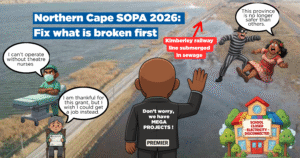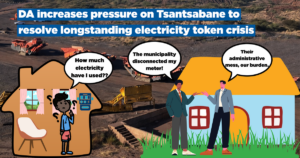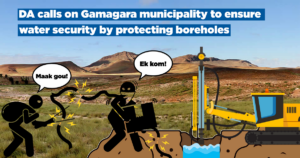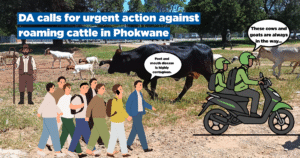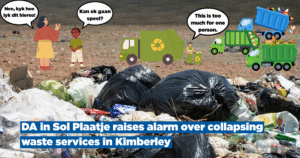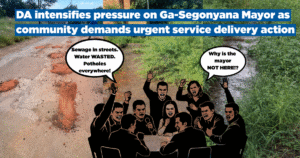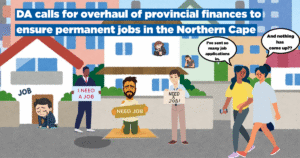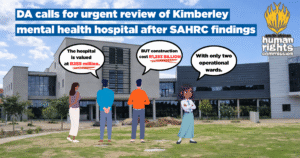The Democratic Alliance (DA) in the Northern Cape is requesting an urgent joint meeting of all stakeholder departments to discuss the roll-out of the R30 million drought relief funding that was allocated to the province by Deputy President David Mabuza on Friday last week, following an oversight inspection of drought affected areas.
Given the magnitude of the drought, it is crucial that the impact of the limited funding is optimized and that processes are streamlined to ensure that farmers receive assistance as soon as possible. It is essential that the affected farmers start registering on the respective data bases as soon as possible.
At the same time, the DA also wants feedback from the Departments of COGHSTA, Agriculture, Rural Development, Land Reform, Environment and Nature Conservation on the finalization of the process to have the drought declared a provincial disaster.
A meeting with these very departments, more than a month ago, revealed that administrative inefficiencies are largely to blame for the delay in having the disaster declaration officially gazetted. This is crucial, as it will unlock additional funding to assist farmers.
The DA further wants to discuss the possibility of alternative avenues that could help alleviate ongoing drought-related pressure on farmers in the short term. In this regard, we want government to consider allocating unused water rights to commercial farmers to expand their production in the short term, at the same time entering into agreements with these farmers with the understanding that government will buy back the crops. The crops can then be utilized as feed for starving livestock in drought ravished areas.
The DA hopes that provincial government will prioritize the drought and act speedily to mitigate its devastating impact on the affected farmers and rural communities, as well as on the economy.

